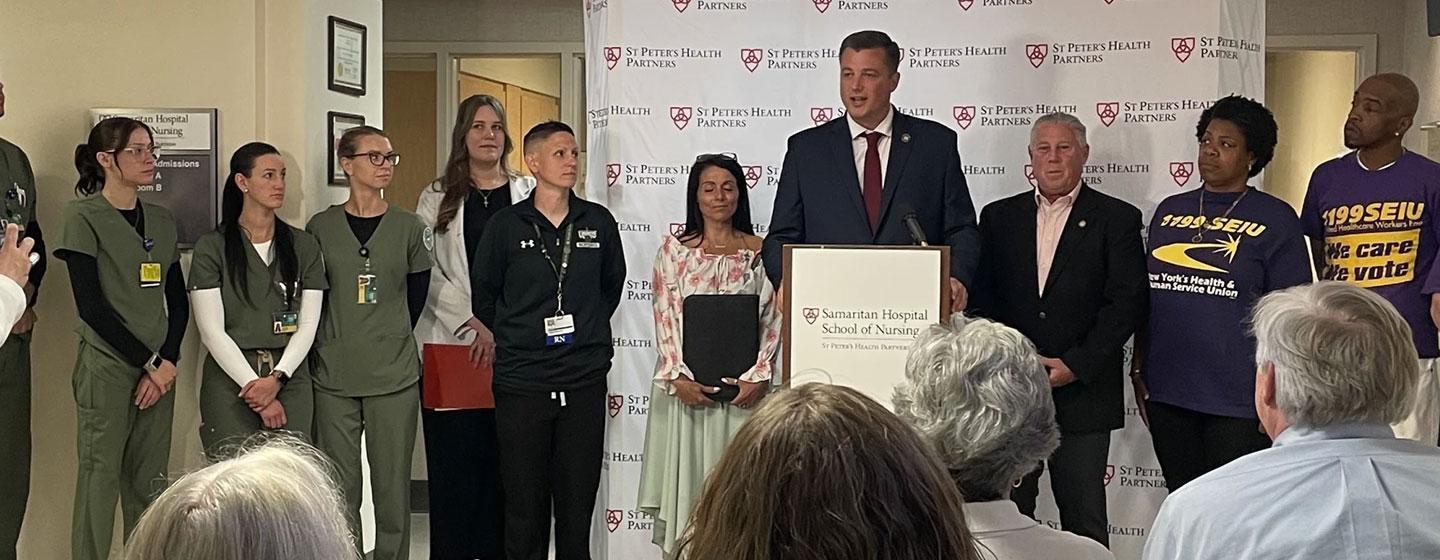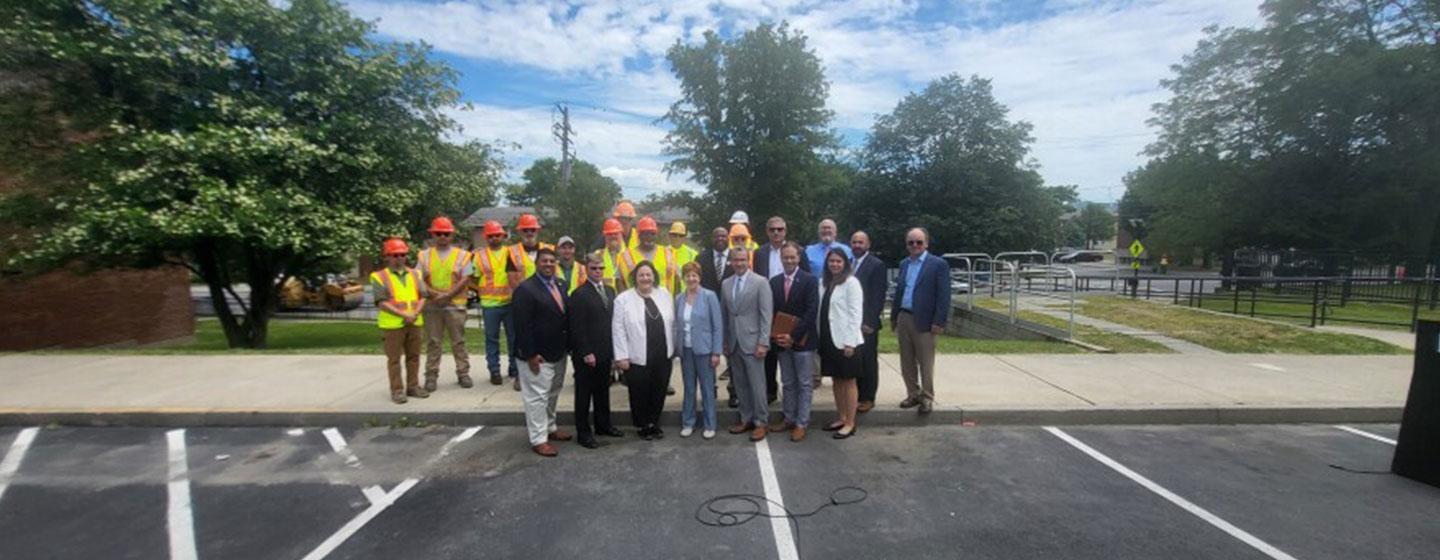Proposed Legislation Could Support Healthcare Workers in New York

With the legislative session in its final week, two state lawmakers from the Capital Region are pushing for more support for nurses.
State Senator Jake Ashby and Assemblyman John McDonald are backing legislation that would provide nurses who become preceptors with a $5,000 stipend.
They say the stipend could encourage clinicians to take on a mentorship role, supporting students and working to improve employee recruitment and retention in the healthcare workforce. Ashby, a Republican who represents the 43rd District, is a licensed Occupational Therapist.
“Having worked through the pandemic, per diem in a nursing home, I got to see how things kind of dropped off,” Ashby said. “We've lost a lot of institutional knowledge, and a lot of opportunities for our new health care clinicians coming in to the workforce. So, this is an opportunity for New York state to get it right.”
McDonald, a Democrat from the 108th district, sponsors the measure in the Assembly. A pharmacist, he says when students are better able to understand the basics, it’s better for the system’s financial health.
“We need to recognize the hard work that those preceptors need to carry out,” McDonald said. “But it's not only hard work, it's not only necessary, but it's critical to making sure that these future health care professionals are ready to hit the ground running when they start to practice.”
The legislators say for now, the bill would provide stipends to nurses, physicians assistants, and midwives. They hope to expand who qualifies, if the program is successful and cost efficient.
The $5 million grant fund would be distributed by the state’s Education Department.
According to NYSED, there are more than 265,000 registered nurses in New York. Ashby says the legislation could help the state battle its severe staffing shortages and burnout in healthcare settings – incentivizing 1,000 preceptors.
“Every time somebody goes into the hospital or has an experience, right, whether it's at an outpatient clinic, or inpatient or home care, right? They're seeing this. It's constant, right? Albany needs to see it,” Ashby said. “And not just at the bottom line, right? Of a budget, right? They need to recognize the importance of the human element here. And what's going to happen to our health care system, if we don't take care of the people who are working in it.”
Since 2019, the number of Registered Nurse licenses issued has grown, more than doubling from nearly 25,000 in 2022.
Meredith Robison is the Chief Nursing Officer for St. Peter's Hospital and Samaritan Hospital.
“We look to lessen loads, you look at the acuity of the patients,” Robison said. “I’m gonna push back on the ratios a little bit, because a number is just a number, your patients are your patients. So, you want to make sure that you're looking at the acuity, and you're teaching them different things all of the time. So, you're always going to be looking at that assignment and you're always going to be looking to change because you want to continue to evolve that nurse into a strong bedside nurse.”
According to Robison, students at Samaritan Hospital School of Nursing spend an average of 12 weeks in clinical rotations with opportunities to get into pathway programs to specialize.
29-year-old Mary Loughlin is a senior at the college. She says she has gone through clinicals with supportive and unsupportive preceptors. She hopes this legislation would incentivize the professionals, creating better quality nurses.
“Like, having a good nurse really makes or breaks it, you'll have the nurse that's like, ‘All right, you're my buddy. We're doing it. I'm showing you everything we're going to do today.’ And then you get some that are like, ‘You're wasting my time, get away from me.’ So, you're like, all right, like don't want to bother you. But the Samaritan program in particular, I found that I've had really great nurses that want to show me,” Loughlin said.
Crystal Perry is a member of 1199 SEIU United Healthcare Workers East. A nurse for nearly 20 years and former preceptor, Perry says the role helps students apply what they learn in the classroom.
“I believe what you learn in school is your foundation. And then once you're out in the field, that's when you build up, right,” Perry said. “And so, there's some things that we experience, while we're in the field and while we're in the clinical aspect of things that we haven't learned in school. And that's why it's so important, and who better to support you than those that have already been there and experienced it.”
The measure has been referred to the Committee on Higher Education.
Related

New York State Lawmakers, Local Officials Promote Bill To Protect Road Workers
As the legislative session winds down, New York state officials are promoting legislation meant to protect road workers.


